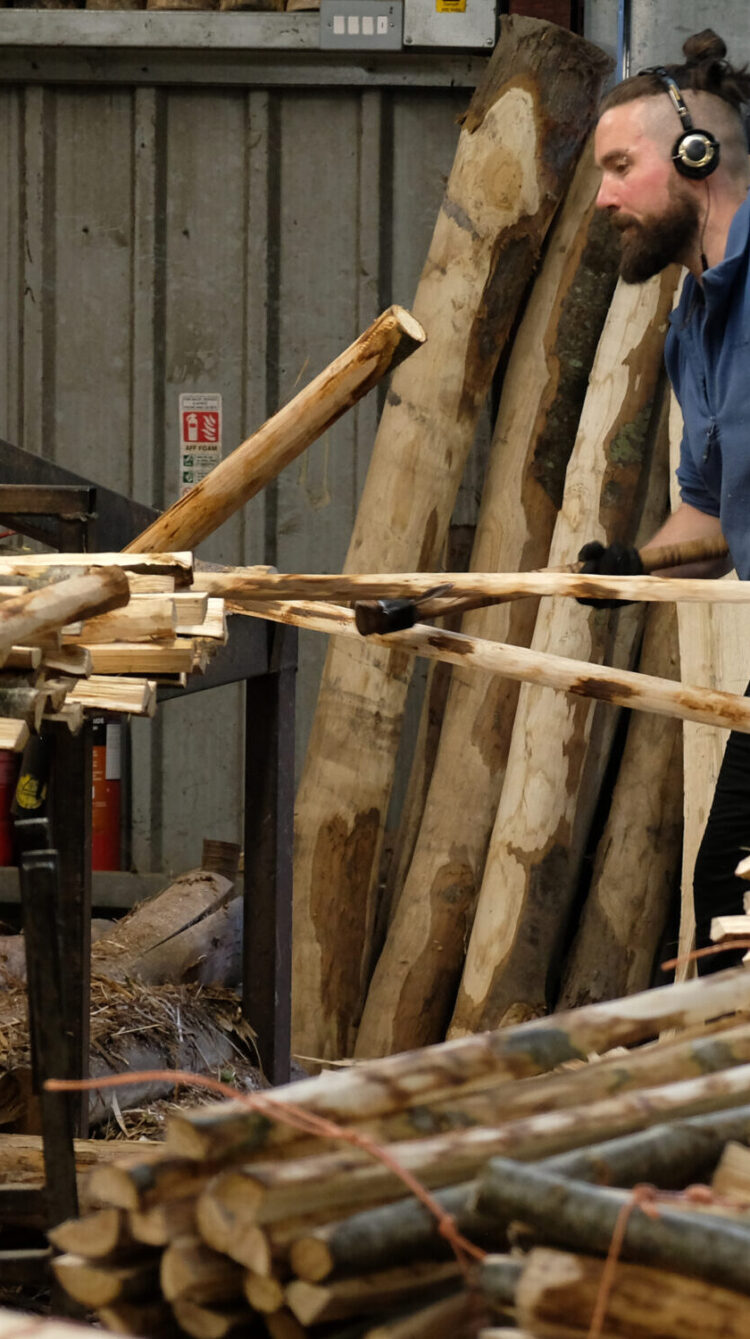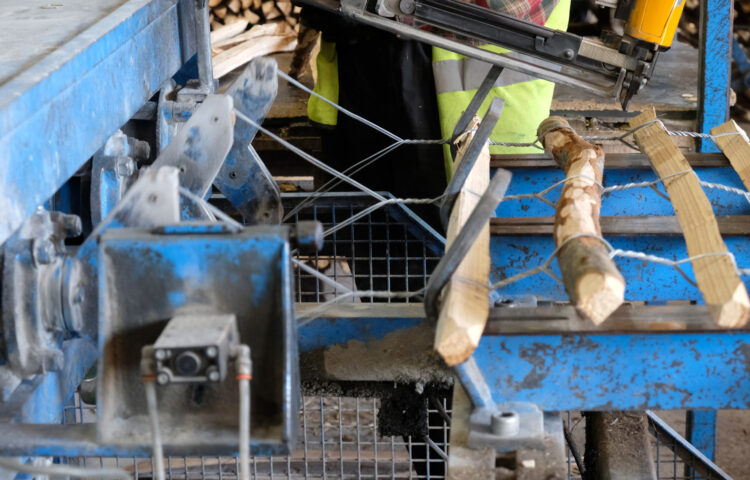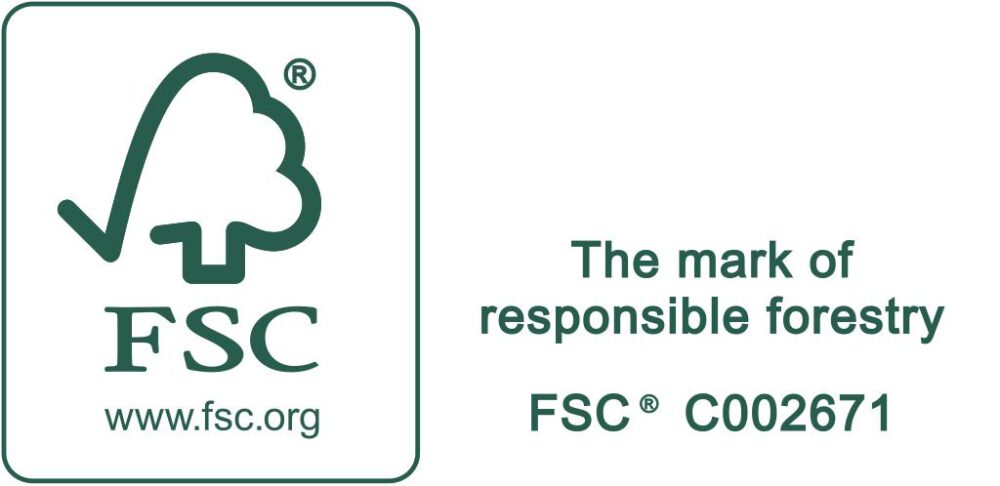How can we help?
Get in Touch
Please get in touch using the form below.
Why Chestnut?

Sweet chestnut (Castanea sativa) contains naturally occurring tannins that make it highly resistant to rot. This means that no chemical treatment is required to produce naturally long-lasting fencing products. Chestnut also cleaves or splits easily along the grain. Wherever possible we do this by hand, leaving the wood’s natural cell structure intact for stronger and longer lasting fences.
Sweet chestnut thrives in the South East of England and chestnut coppicing became a major industry here during the 19th century, chiefly to provide poles for growing hops as well as for making fencing. When British hop production declined after the second world war, fencing manufacture expanded to make use of the available chestnut wood.
When John Leigh-Pemberton founded Torry Hill Chestnut Fencing in 2011, the industry was floundering and coppice woodland widely neglected. He transformed what was then an ailing cottage industry into a modern operation. Our industrial production process incorporates and preserves traditional rural craft and forestry traditions, while serving the needs of 21st century customers.





